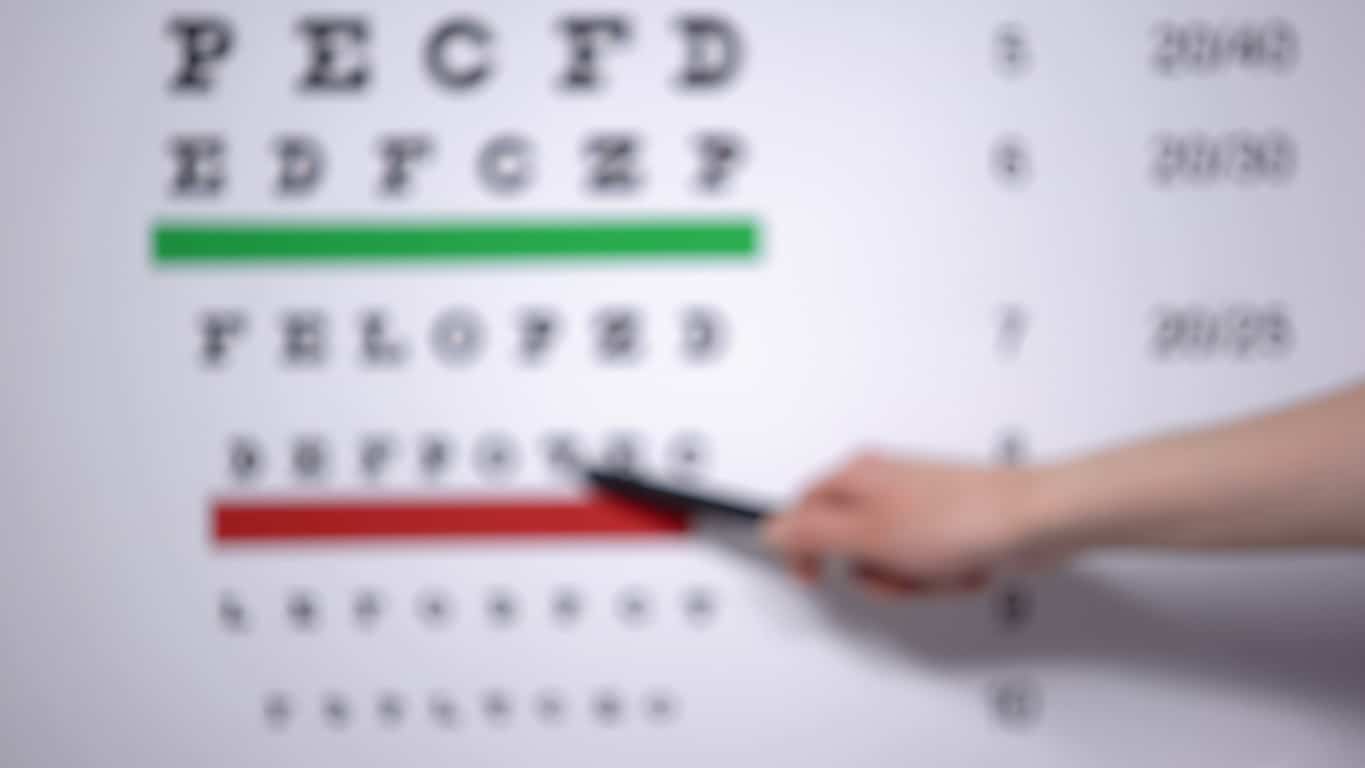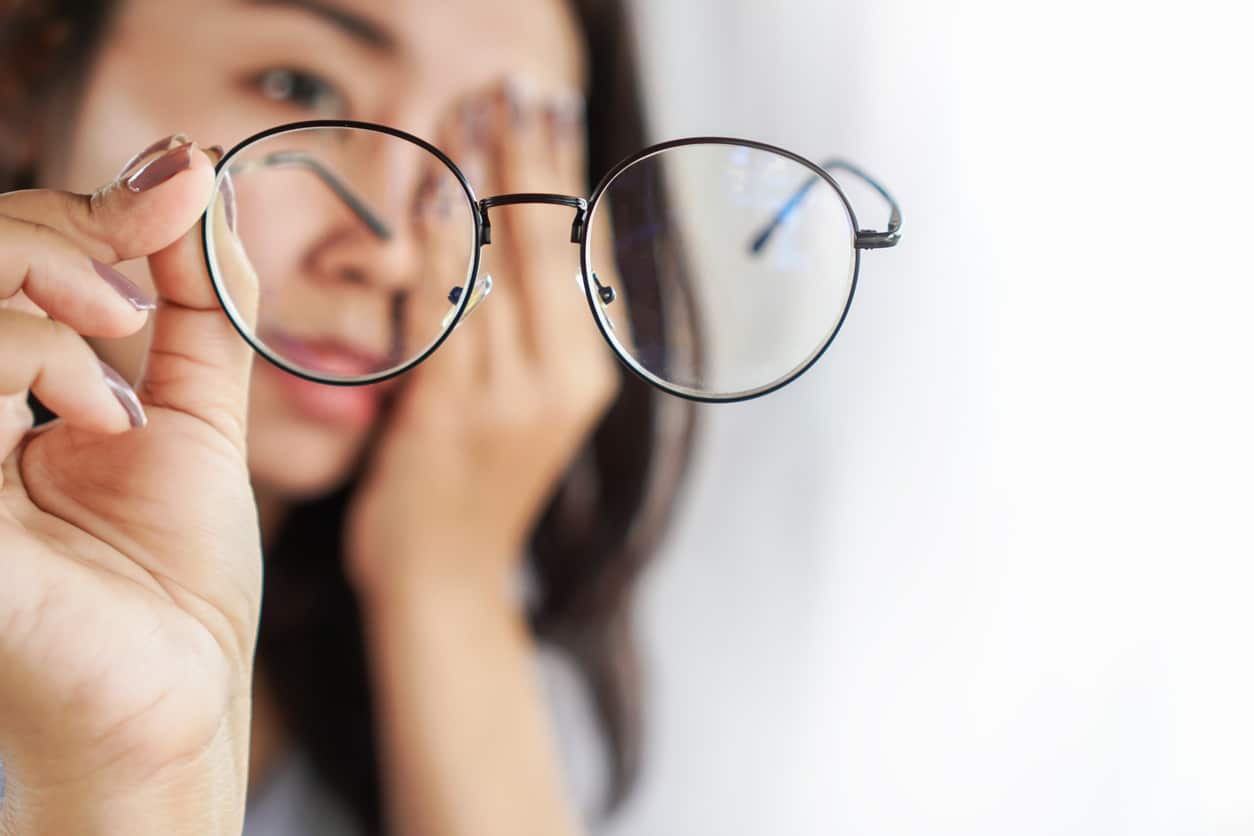Relief from Blurry Vision for Provo Residents
Blurred vision can result from a variety of different conditions and diseases. Most commonly, blurry vision is caused by the length of the eye or the shape of the cornea (as with myopia, hyperopia, and astigmatism). Blurred vision can also be a sign of other more serious eye diseases such as cataracts, glaucoma, and macular degeneration.
If you experience blurry vision, we recommend scheduling an eye exam with one of our doctors right away rather than waiting to see if your vision returns. The sooner we can diagnose a serious problem, the more likely it is you will have a better outcome from treatment.

What are the Causes of Blurry Vision?
Not only is blurry vision an irritating problem that affects your daily activities, but it may also be a sign of a more serious problem.
Blurry vision can be caused by changes in the shape of the eye, cataracts, glaucoma, diabetes, or issues related to the tear film leading to dry eyes. Sudden blurred vision accompanied by symptoms like a severe headache, stiff neck, nausea, or vomiting could indicate serious conditions such as a stroke or acute glaucoma attack and should be addressed with immediate medical attention.
Regular eye exams are an important way to help treat blurred vision and potentially avoid significant vision loss. During your annual eye exam, we will help you understand the cause of your blurry vision, check for eye diseases or disorders, and create a plan to help you see your best.
Symptoms Associated with Blurry Vision
How Do You Treat Blurry Vision?
The treatment of blurry vision will vary depending on the underlying cause. Eyeglasses and contact lenses are commonly used to correct blurry vision caused by refractive errors such as myopia or hyperopia, as well as conditions like cataracts. Medications may be prescribed to address the specific condition leading to blurry vision.
Eye drops can be recommended for age-related blurry vision known as presbyopia. In some cases, surgical procedures like cataract removal or LASIK may be suggested to improve eyesight. To prevent blurry vision and maintain overall eye health, it is important to have regular eye check-ups, adopt a healthy lifestyle, refrain from smoking, and safeguard the eyes from potential hazards like UV radiation.

Provo’s Blurry Vision FAQs
Refractive errors, infections, migraines, and cataracts are all potential causes of blurred vision in only one eye. However, if you experience sudden onset or isolated blurry vision in one eye, it could signal a medical emergency, and you should immediately seek care from an eye doctor or other healthcare provider.
Blurred vision can sometimes be improved using natural treatments at home. However, if you experience a sudden onset of blurred vision or loss of vision, especially when accompanied by other concerning symptoms, seek immediate medical attention at an emergency room to rule out serious conditions like a stroke.
Some natural habit improvements that reduce blurry vision include:
- Ensuring you get enough rest
- Avoiding allergens
- Wearing sunglasses outdoors
- Using eye protection during risky activities
- Maintaining a healthy diet rich in essential nutrients
- Staying hydrated
Yes, dry eyes are a common cause of blurry vision. You can explore our dry eye treatments here. Contact our team today for an in-depth diagnosis of your unique needs and request an eye exam.
Request an Appointment
Regular eye exams are an important way to help treat blurred vision and potentially avoid significant vision loss. During your annual eye exam, we will help you understand the cause of your blurry vision, check for eye diseases or disorders, and create a plan to help you see your best.
Contact our office today to schedule an exam. During our comprehensive exam we will check your vision as well as the health of your eyes. We will take the time to answer all your questions and develop a plan together. Call (801) 373-4550 or request an appointment using the link below.
